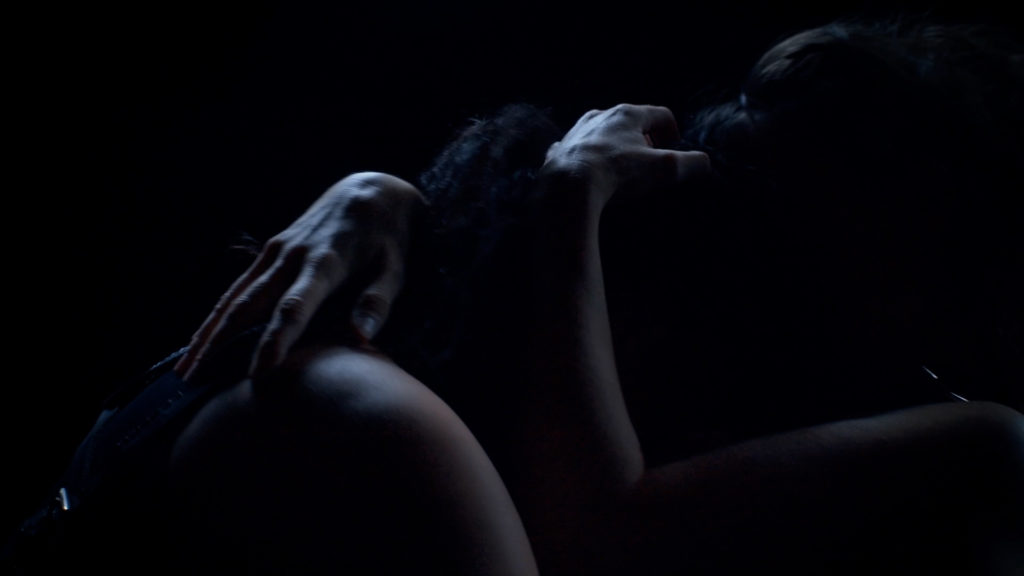SKÁDJA
Short film, 16:35 min, 2022
A meeting between two women in the forest has a strong impact on them both. Can they overcome their traumas?

A woman with a heavy suitcase approaches another woman in her natural territory – deep in a forest. The meeting has a powerful impact on them both, and no matter how much they try to escape it, something has changed dramatically within them. While present in each other’s minds, they search for ways to overcome their inner conflicts – created due to centuries of societal judgment and repression from society.
Skádja is an exploration of nature, spirituality, passion and movement. A queer, indigenous story from Sápmi about regaining freedom and finding one’s inner witch. It combines past and present in a fantastic universe. The drum used in the film is a Sámi traditional “runebomme”, a musical instrument as well as a spiritual tool used to predict the future, or to get in touch with “the other side”.
Back in the 17th century, owning a drum like this would be reason enough for being burned at stake. It was believed that evil came from the north, and as many as 91 people were executed, in the area of Finnmark (the very most northern part of Norway) alone! Most of the accused were women, and many were Sámi’s – a pagan people with their own beliefs.
Most likely, they were all a little on the side of the social norms of the time, and were therefore seen as a threat to the Christian-patriarchal society – not unlike what still happens to queer people today. Because we are loving and living differently.
The film’s opening scene shows a woman tied at the hands and feet, fighting for her life underwater. The “water test” was a typical method of detecting who was and was not a witch. Those who floated were witches and had to die, the rest were not, but they would drown instead. This woman reappears shortly after, carrying the suitcase that represents her heavy baggage of trauma and shame.
However, the persecution, repression and brutality of the past has shaped the reclamation of the witch-term in modern times. Today the designation “witch” also represents as a feminist icon, thanks to women and artists who over the years have reclaimed the term. German expressionist dancer and choreographer Mary Wigman created Hexentanz in the early 20th century, and became one of the first female dancers to appear as something other than graceful and pretty on stage. She stated that through this she found an inner strength and encouraged more women to find “their inner witch”.
Skádja is inspired by Wigman, and it is inspired by the power of nature. It is about what we do not necessarily understand – but yet feel. About finding inner strength and courage, and listening to our own heart and voice.
Or maybe you find another interpretation, the film is open to that!
Cast: Timimie Märak & Ane-Martha Tamnes Hansgård
Writer & director: Eili Bråstad
Producer: Helene Eggen / Mattima Films AS
DOP: Zoë Schmederer
Editor: Truls Krane Meby
Composer: Kristine Hansen
Made with funding from Norsk Filminstitutt, Nordnorsk Filmsenter, International Sámi Film Institute, Sametinget